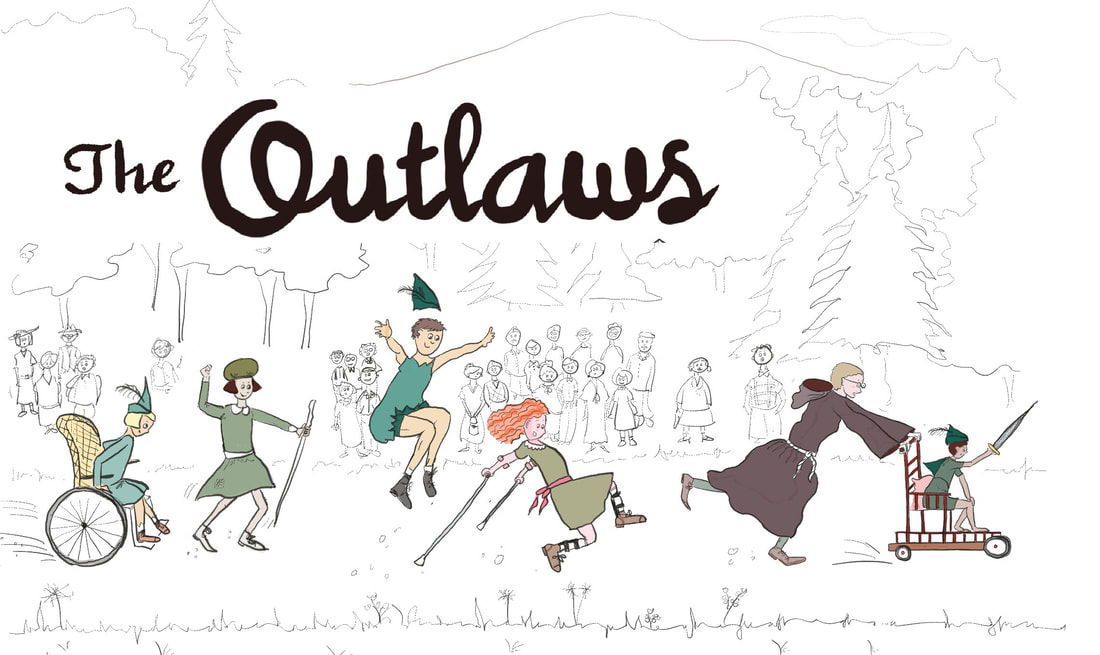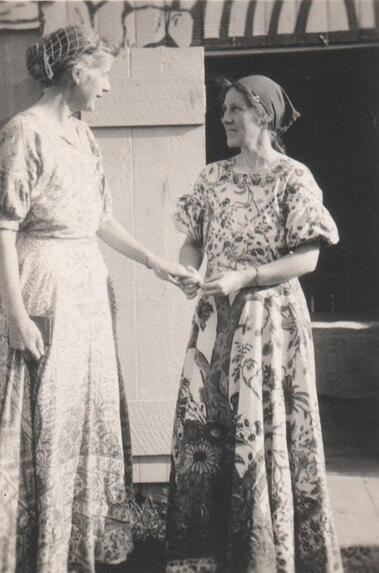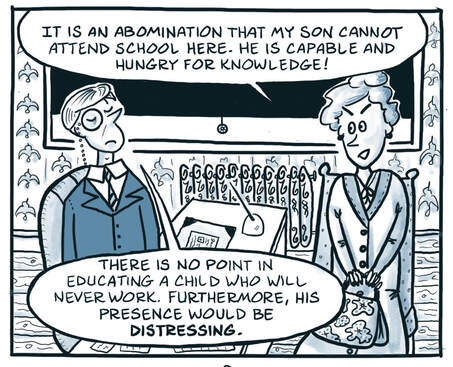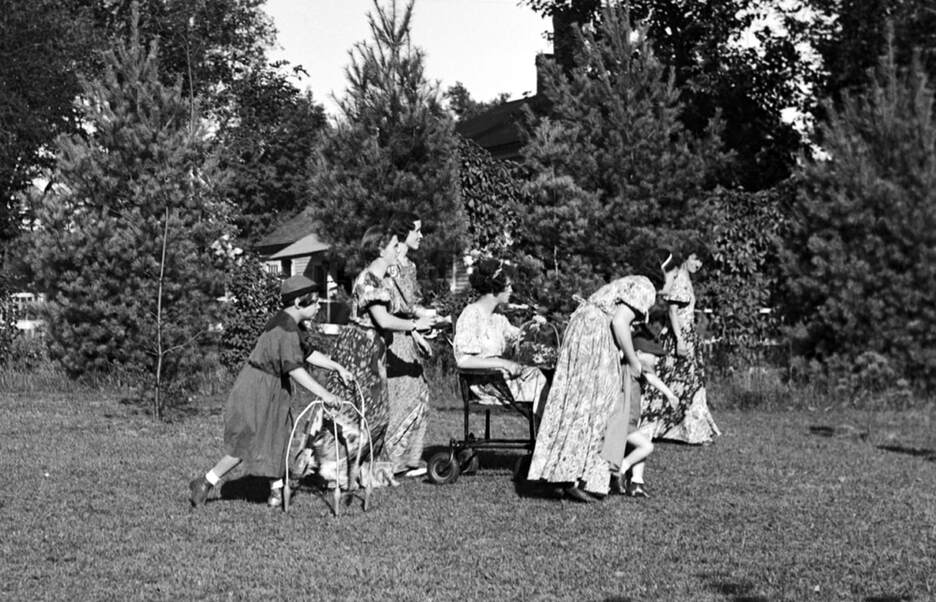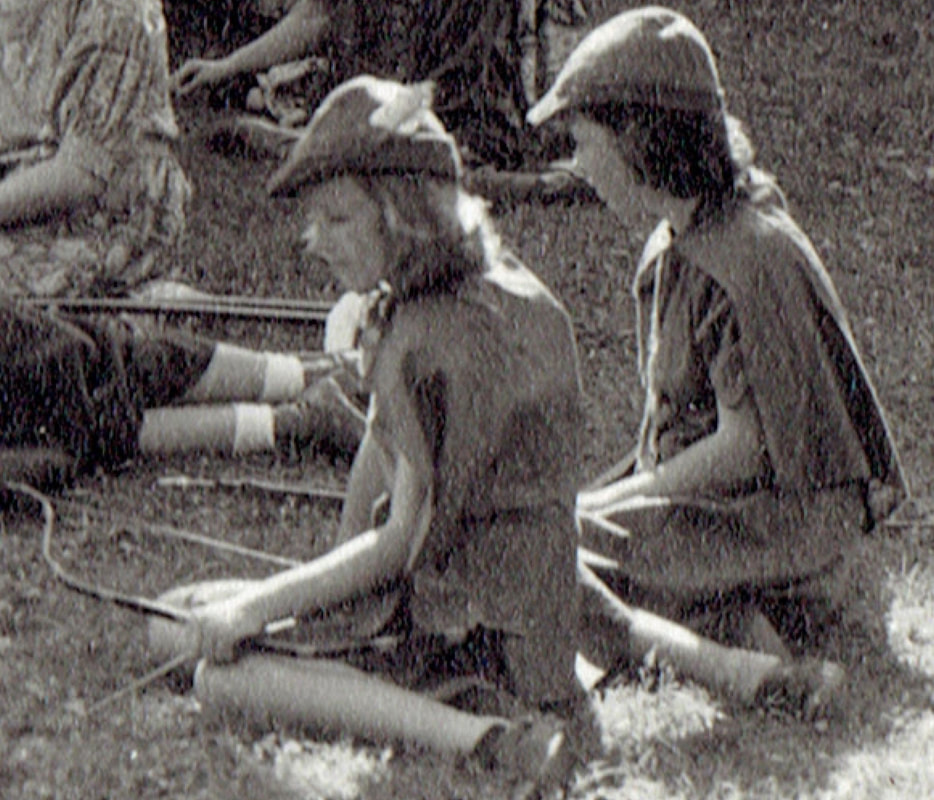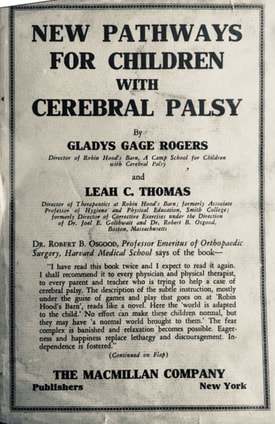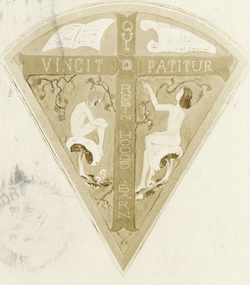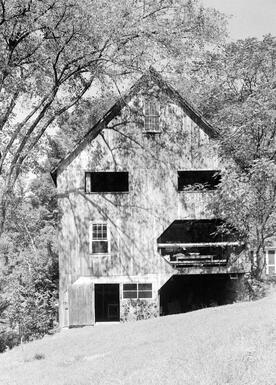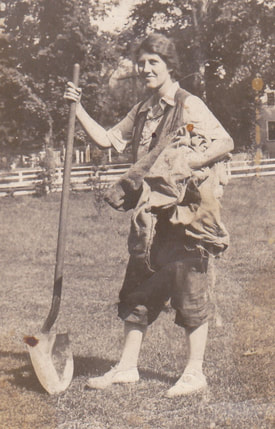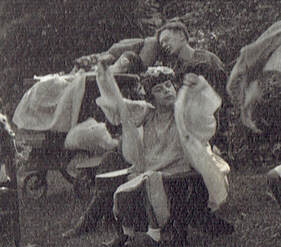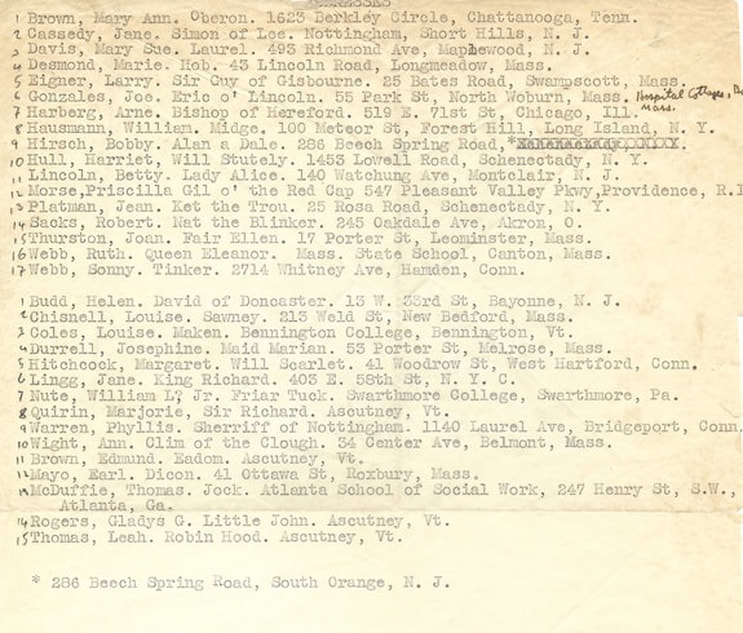I'm a cartoonist, journalist, historian, and mom. Three years ago, I stumbled upon a curious book... |
It was published in 1935 and detailed an avant garde approach to raising kids with disabilities—kids like my son. It emphasized the inner life, wisdom, and dignity, not the medical paradigm. And it described a Robin Hood-themed summer camp in the wilds of Vermont where "spastic" children with few legal rights took on the roles of dashing outlaws...
|
What was happening there?
Psychodrama? A budding social justice movement? A mini-theme park for crippled kids? My young son and I were determined to find out. With the help of a small-town history society, Lady Luck, and some very, very old people, we pieced together the fragments of a mythical chapter in disability history.
Gladys Gage Rogers and Leah Thomas, camp directors and life partners.
What kind of thing is this?
|
The Outlaws is a 250-page graphic nonfiction book in which the story of Robin Hood's Barn is interwoven with my son's and my journey to understand disability, each other, and the history of children like him. The book will appeal to independent comics fans, parents, teens, and anyone who identifies with the beauty, brutality, and humor of life on the margins. |
Archival Material
My son and I were fortunate to access over 200 pages of camp memorabilia saved by the 103-year-old counselor who played Friar Tuck, including rosters, songs, poems, lecture notes, and a long correspondence with camp directors Gladys Gage Rogers and Leah Thomas. Over 100 photographs taken at Robin Hood's Barn survive, taken by Newell Green, a well-known Vermont photographer with cerebral palsy who lived across the road from the camp.
|
|
